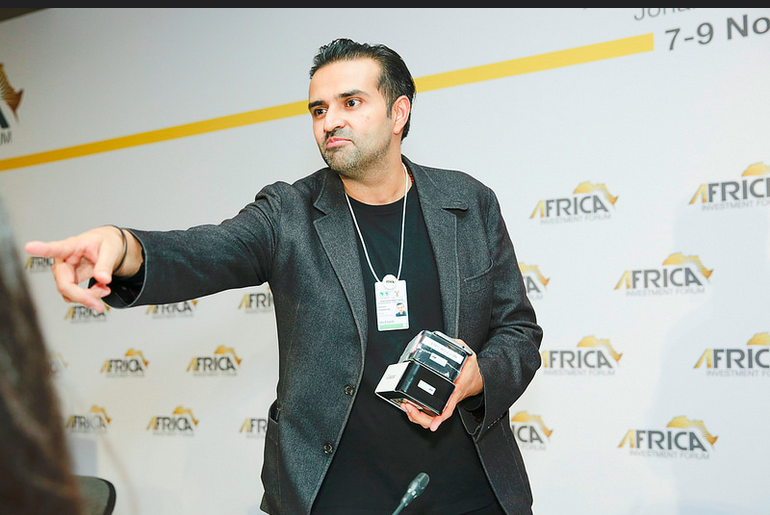
Featured | Nov 21,2018
Sep 4 , 2021
By Austine Sequeira
Taliban 2.0 is now a reality. The world will soon see Afghanistan governed by the radical religious organisation, albeit in a new avatar. There are reports from Kabul claiming that the Taliban has been mellowed down this time around and would not risk practising harsh rule as it did before. Time will tell. World politics is a never-ending arc of learning. Every development throws out remarkable lessons for everyone.
Human beings are social animals. Thousands of years of human existence has not changed human living based on ethnicity and tribe. Democracy and democratic values – freedom, equality and social justice – help to bond different ethnic groups into a nation. Lack of it will either disintegrate a nation or lead to forceful and fragile integration. Politically unstable African nations are learning this the hard way.
India offers some hope. It comprises thousands of small ethnic and tribal groups, eight princely states, over five religious minorities and up to three hundred languages. Despite being merely a developing nation, seventy-five years of ‘practical democracy’ has bonded the Indian nation into the world’s largest democracy and one of the fastest-growing economies.
India’s interest in Afghanistan is a case study. India invested billions in Afghanistan by creating real-time assets like dams, highways, power transmission lines and schools. It is now also believed that India was better at building bridges with moderates for the safety and security of its people in Afghanistan. India is reaping the harvest during the worst of times. Not only was it able to timely evacuate its mission, but it also achieved the feat of evacuating Afghani citizens of Indian origin as the Taliban closed in on Kabul. Unconfirmed reports also say that the Taliban wants Indians to stay put in Afghanistan and carry out economic activity.
China has a different approach. It is one of the few countries demanding recognition of Taliban rule even before it has been established. It has set its eyes on Afghanistan’s mineral resources, such as lithium. Access to Afghanistan will also rejuvenate its Belt and Road Initiative in Central Asia. The Taliban will oblige the Chinese by leveraging the country’s natural resources. The world will have another heavily indebted poor nation. During the last decade, China has implemented such a tried and trusted ‘nation finance’ formula in several African countries.
Pakistan has a vested interest in Afghanistan as well, which does not add any value to its national interest. There are a few Taliban leaders whom Pakistan apparently jailed. There is no reason to believe that the Taliban will oblige Pakistan in any way once their rule is established.
Only time will tell whether the emerging Taliban-Pakistan-China-Iran alliance will create a new world order and destroy the existing one in the Indian ocean that was built around the leadership of the United States.
Revisiting the point of local Afghan ethnicity, as the Taliban rule sinks in, an ethnic flare-up is imminent. Panjshir Valley has openly declared its resistance to Taliban rule and demanded negotiations. Other armed ethnic groups that are in wait-and-watch mode will likely do the same as the dust settles. Democratic values will be put to the test in Afghanistan very soon. As things stand today, the Taliban cannot ignore negotiated settlements with armed ethnic groups.
Much of the international attention about the plight of Afghanistan has focused on the United States, nonetheless. Despite setbacks, the United States will always remain a superpower. Two decades of occupation and trillions of dollars spent will get the country to rethink its strategy but not whether or not it will engage in other countries.
Since the Vietnam debacle, the United States has had dozens of incursions in various countries. Several of these were with an eye on “future commercial interests.” The US has finally realised that Afghanistan has very little to offer in terms of valuable resources but presents a significant political headache. It is more trouble than it is worth, hence this hasty retreat. Next time the US comes knocking at one’s nation, please make an inventory of the resources one has to offer them for better negotiation and peaceful co-existence.
Several African States are on the verge of ‘Talibanisation’ although the intensity differs. Democratic values are being subverted with impunity to suit the rulers. The time has come for the people of such nations to learn the lessons from Afghanistan. Neither the US nor China are knights in shining armour. Only domestic resilience succeeds in allowing a country stability and economic development.
PUBLISHED ON
Sep 04,2021 [ VOL
22 , NO
1114]


Featured | Nov 21,2018

Viewpoints | Feb 15,2020

Radar | Dec 19,2021

Radar | Nov 20,2023

Viewpoints | Sep 14,2019

Radar | Mar 18,2023

Radar | Feb 09,2019

Fortune News | Nov 04,2023

Radar | Jun 17,2023

Viewpoints | Feb 11,2023

My Opinion | 131590 Views | Aug 14,2021

My Opinion | 127946 Views | Aug 21,2021

My Opinion | 125921 Views | Sep 10,2021

My Opinion | 123545 Views | Aug 07,2021

Dec 22 , 2024 . By TIZITA SHEWAFERAW
Charged with transforming colossal state-owned enterprises into modern and competitiv...

Aug 18 , 2024 . By AKSAH ITALO
Although predictable Yonas Zerihun's job in the ride-hailing service is not immune to...

Jul 28 , 2024 . By TIZITA SHEWAFERAW
Unhabitual, perhaps too many, Samuel Gebreyohannes, 38, used to occasionally enjoy a couple of beers at breakfast. However, he recently swit...

Jul 13 , 2024 . By AKSAH ITALO
Investors who rely on tractors, trucks, and field vehicles for commuting, transporting commodities, and f...

Jun 28 , 2025
Meseret Damtie, the assertive auditor general, has never been shy about naming names...

Jun 21 , 2025
A well-worn adage says, “Budget is not destiny, but it is direction.” Examining t...

Jun 14 , 2025
Yet again, the Horn of Africa is bracing for trouble. A region already frayed by wars...

Jun 7 , 2025
Few promises shine brighter in Addis Abeba than the pledge of a roof for every family...

Jun 29 , 2025
Addis Abeba's first rains have coincided with a sweeping rise in private school tuition, prompting the city's education...

Jun 29 , 2025 . By BEZAWIT HULUAGER
Central Bank Governor Mamo Mihretu claimed a bold reconfiguration of monetary policy...

Jun 29 , 2025 . By BEZAWIT HULUAGER
The federal government is betting on a sweeping overhaul of the driver licensing regi...

Jun 29 , 2025 . By NAHOM AYELE
Gadaa Bank has listed 1.2 million shares on the Ethiopian Securities Exchange (ESX),...